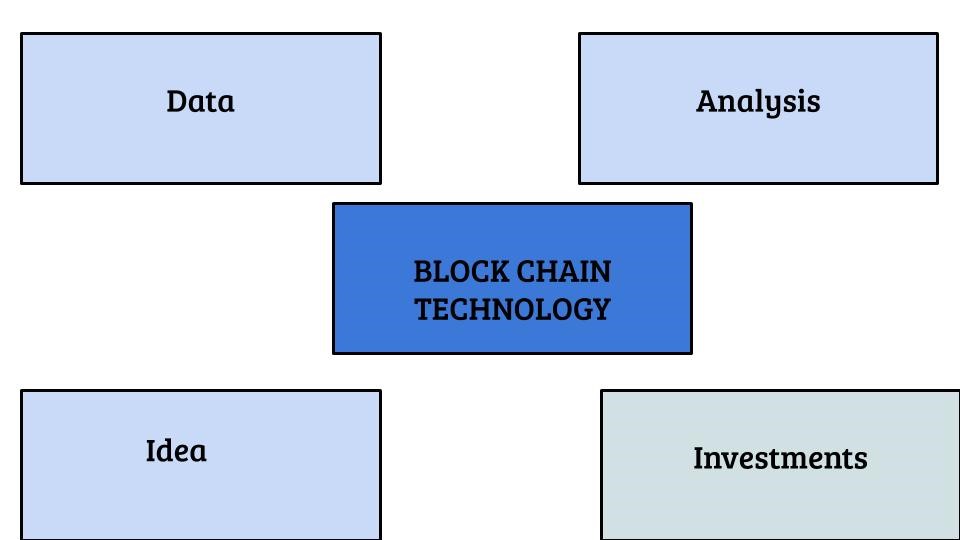
Digital technology, pervasively, is getting embedded in every place: every thing, every person, every walk of life is being fundamentally shaped by digital technology — it is happening in our homes, our work, our places of entertainment. It’s amazing to think of a world as a computer. I think that’s the right metaphor for us as we go forward. – Satya Nadella, CEO of Microsoft
Healthcare research initiatives are embracing industry 4.0 tools, facilitating more computer usage in their research efforts, and enabling better decision making processes to take place as discoveries are being made. In the computing realm, there is the emergence of blockchain technology, which facilitates decentralized data processing.
How then, can the data be processed in order to facilitate these outcomes? From an operational excellence standpoint, data is key to identifying process bottlenecks, and subsequently promoting solutions that will be developed from knowing their root causes. Drug development is a process that is currently on an upward spiral, with the advent of digital tools that are able to collate data, run simulations and then enable the appropriate drugs or medical innovations to be delivered for patients.
Science is well known for cross functional uses. Many modern technologies that we rely on, such as GPS were developed by scientists and engineers in either army labs or NASA labs. If a discovery doesn’t make it on sphere, it can be repurposed for use in another realm. Interestingly, blockchain technology still has its origins in its original realm – Bitcoin and the financial sector. The underlying framework however, has usage in the medical realm in the facilitation of data transfer and processing.
The medical industry prides itself on patient confidentiality. When it comes to general research, it is important for data to be properly interpreted and analysed. For patient data that is collected and analyzed for a cause, it will be important for critical information to be cleansed from the original data pool. With data sources ranging from healthcare institutions, insurance companies and third party sources, care must be taken to protect original patient data.
As a decentralised ledger system, blockchain technology is a web-based framework that allows both patients and researchers to access a pool of information. Based on the system design and access, it will be possible to facilitate both user confidentiality and data exchange as transactions are processed. With data transparency, it will be possible to facilitate the desired data pooling during clinical trials. With data traceability, data audits and information validity can be facilitated. With open data in systems, studies such as patient feasibility analysis and population studies can be conducted.
Blockchain Technology
As a distributed, public ledger of information linked in a peer-to-peer network of computers blockchain technology is key to healthcare data processing. Blockchain technology has various advantages including: decentralized management, immutable audit trail, data provenance, robustness, and improved security and privacy.
Technically, a blockchain consists of ordered records. These are organized in an array, resembling that of a block. Each data block has a unique identifier that enables it to be traced. With this identifier, the history of transactions that the data block is involved in, can be tracked. Block connection is facilitated in a sequential fashion, and the resultant technology then derives its name. The beauty of blockchain technology is that connected blocks of data make it difficult to modify data in part of a sequence without modifying the entire block.
The immutability of data, the phenomenon described above, is expected to improve patient care, by improving the current state of medical record management. From a peripheral perspective, organizations such as insurance companies that are linked to the hospital, can optimize their insurance claim process. Within the medical entities themselves, inhouse clinical and biomedical research can be accelerated.
Additional Advantages of Blockchain Technology
While institution research, and medical innovation is key, with patients having the right to assign access rules to their medical data for a time that they determine, the patients can also log into the systems and collect their own medical data. This information will be critical in those instances where they feel like they might want a second opinion on their particular cases.
Having the ability to access and utilize data will be a win for all. Dissecting the medical data, certain fields in the patient data will be tagged and stored in data blocks. Private data will be kept on internal files, while critical data such as patient allergy data, will be published on a public domain.
With blockchain technology currently evolving, there are challenges to be met and overcome, before the technology can be readily accessible for mainstream or organizational healthcare applications. Once privacy, sharing access, network speed and other inherent challenges are dealt with, blockchain technology will become more widespread. As with all things that are new, there will be an initial phase of introduction, after which tweaking will facilitate the desired outcomes.
Once the critical data collation limitations are overcome, the drug delivery process can then be optimized to facilitate faster throughput of crucial medicines to the field. All of this starts with knowing the root cause of the problem, and then the relevant research activities will be developed that will enable manufacturing to meet the demands of the patient base.
Reference Articles:
- ICON : https://pages.questexweb.com/rs/294-MQF-056/images/ICON%20Digital%20Disruption%20Whitepaper.pdf
- Blockchain Technology and Healthcare: https://www.ncbi.nlm.nih.gov/pmc/articles/PMC6517629/pdf/hir-25-59.pdf
